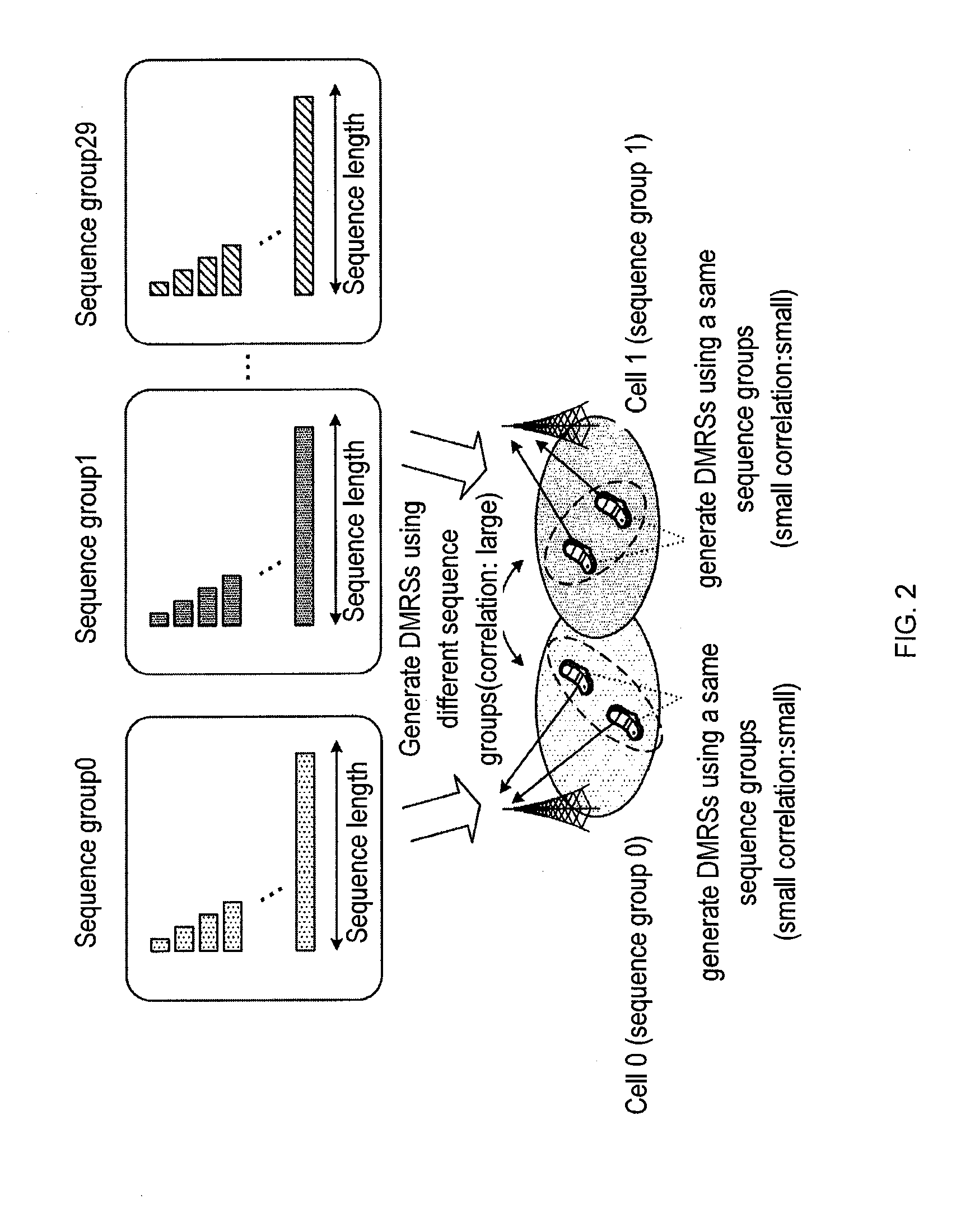Transmitting device and transmitting method
- Summary
- Abstract
- Description
- Claims
- Application Information
AI Technical Summary
Benefits of technology
Problems solved by technology
Method used
Image
Examples
first exemplary embodiment
Outline of Communication System
[0063]FIG. 7 illustrates a communication system according to a first exemplary embodiment. The communication system in FIG. 7 consists of base station 100 and one or a plurality of user terminals 200 in a cell. In FIG. 7, base station 100 may be a macro cell base station or a small cell base station. The communication system may be a HetNet system including both the macro cell base station and the small cell base station or a CoMP (Coordinated multipoint) system in which a plurality of base stations communicate with the user terminal in a coordinated manner. The macro cell and the small cell may be operated at different frequency bands or at the same frequency band.
[0064][Configuration of Base Station 100]
[0065]FIG. 8 is a block diagram illustrating a main part of base station 100.
[0066]Base station 100 in FIG. 8 includes control signal generating section 11, transmitting section 12, receiving section 13, channel estimating section 14, and received dat...
second exemplary embodiment
Outline of Communication System
[0173]Similarly to the first exemplary embodiment (see FIG. 7), a communication system according to a second exemplary embodiment consists of base station 100 and one or a plurality of user terminals 200.
[0174]In the second exemplary embodiment, the power (power density) offset is added to the additional data resource, and the MCS level is set based on a criterion different from the data except the additional data.
[0175][Configuration of Base Station 100]
[0176]Using the higher layer, control section 101 of base station 100 previously notifies user terminal 200 of the MCS level that is used in the additional data resource during the use of the reduced DMRS. The MCS level used in the additional data resource may be set according to the reduced DMRS pattern or the allocated bandwidth. For example, control section 101 sets the MCS level to the higher value as the number of DMRS resources of the reduced DMRS pattern decreases, whereby control section 101 ca...
third exemplary embodiment
Outline of Communication System
[0207]Similarly to the first exemplary embodiment (see FIG. 7), a communication system according to a third exemplary embodiment consists of base station 100 and one or a plurality of user terminals 200.
[0208]In the third exemplary embodiment, in addition to the processing of the first exemplary embodiment, the positive power (power density) offset is added to the DMRS during the use of the reduced DMRS.
[0209][Configuration of Base Station 100]
[0210]Using the higher layer, control section 101 of base station 100 previously notifies user terminal 200 of the transmission power (transmission power density) offset added to the DMRS during the use of the reduced DMRS.
[0211][Configuration of User Terminal 200]
[0212]For the use of the reduced DMRS, control section 205 of user terminal 200 adds the power (power density) offset of which the notification is made through the higher layer to the DMRS. That is, for the use of the reduced DMRS pattern, control secti...
PUM
 Login to View More
Login to View More Abstract
Description
Claims
Application Information
 Login to View More
Login to View More - R&D
- Intellectual Property
- Life Sciences
- Materials
- Tech Scout
- Unparalleled Data Quality
- Higher Quality Content
- 60% Fewer Hallucinations
Browse by: Latest US Patents, China's latest patents, Technical Efficacy Thesaurus, Application Domain, Technology Topic, Popular Technical Reports.
© 2025 PatSnap. All rights reserved.Legal|Privacy policy|Modern Slavery Act Transparency Statement|Sitemap|About US| Contact US: help@patsnap.com



